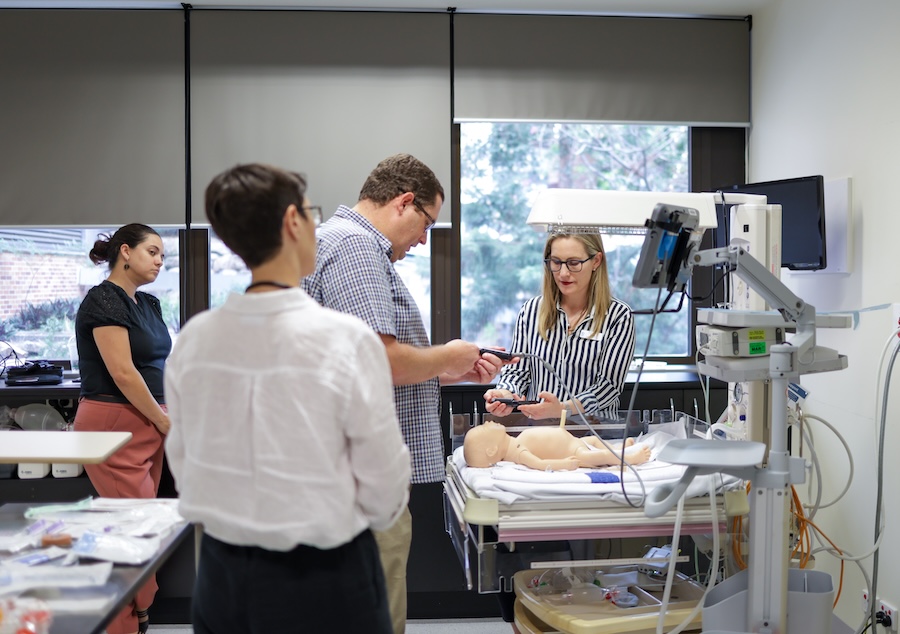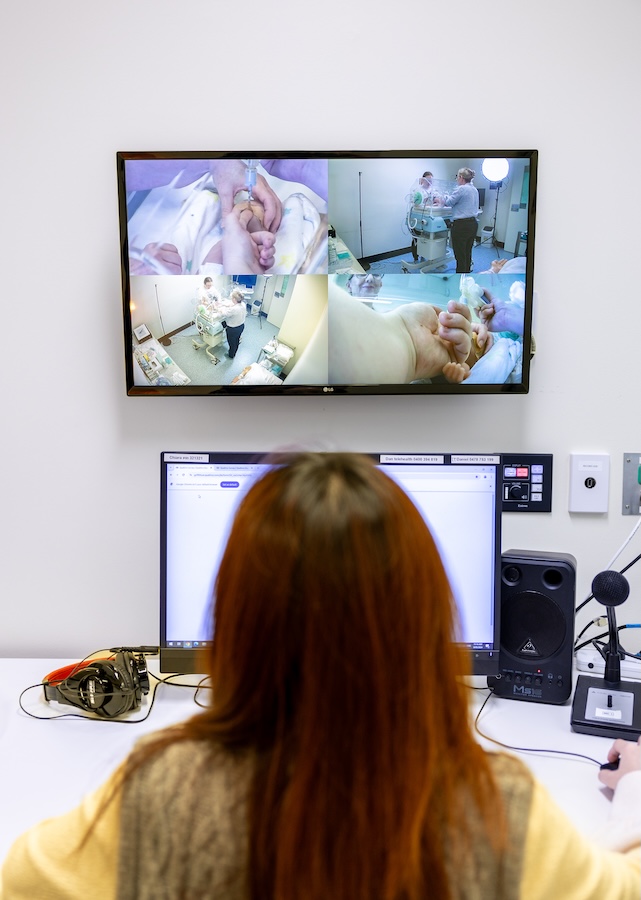Queensland Innovation Living Lab (QuILL)
Clinical Skills Development Service, in collaboration with Clinical Excellence Queensland
The Queensland Innovation Living Lab (QuILL) is dedicated to the design, evaluation, and selection of medical devices, software, and clinical spaces.
We envisage a world where end-users are at the heart of developing and selecting medical devices, software, and processes, ensuring optimal safety, usability, and effectiveness.
Variations in device features and configurations across manufacturers can make direct comparisons challenging. Usability testing helps bridge this gap by focusing on how clinicians interact with each device in real-world settings.

Our mission
To support clinician performance and healthcare efficiency by applying Human Factors to the design and evaluation of medical devices, software, and clinical processes.
QuILL serves as a central hub for design and evaluation, thanks to strategic partnerships with Queensland Health, external government agencies, universities, and MedTech innovators. These collaborations enable QuILL to support clinician performance, which translates to improved patient safety.
Innovating MedTech
Data-driven procurement
Device-user interface errors in clinical incidents
Clinical processes and environment design
Innovating MedTech
Design consultation, rapid prototyping, and evaluation of medical devices and software.
Our living lab workspaces
Our simulation labs provide a safe clinical environment that allows us to conduct high-fidelity test on the usability and functionality of medical devices and clinical processes.
Our spaces

Our clients and collaborators
Queensland Innovation Living Lab (QuILL)
Clinical Skills Development Service, in collaboration with Clinical Excellence Queensland
Contact us
Queensland Government acknowledges the Traditional Owners of the land and pays respect to Elders past, present and future.
The State of Queensland 2024 (Queensland Health)